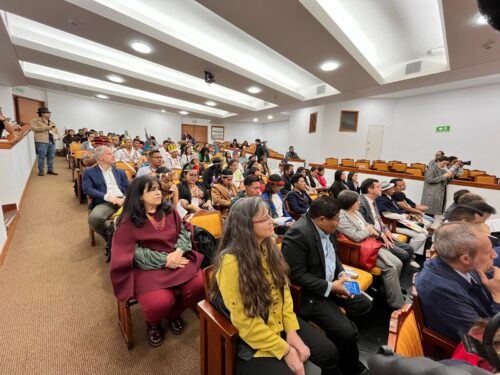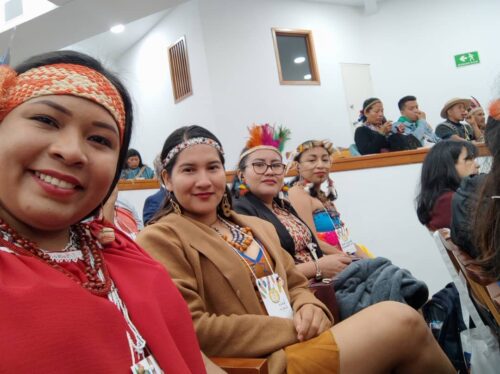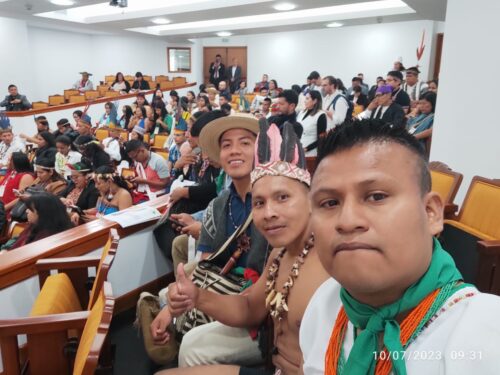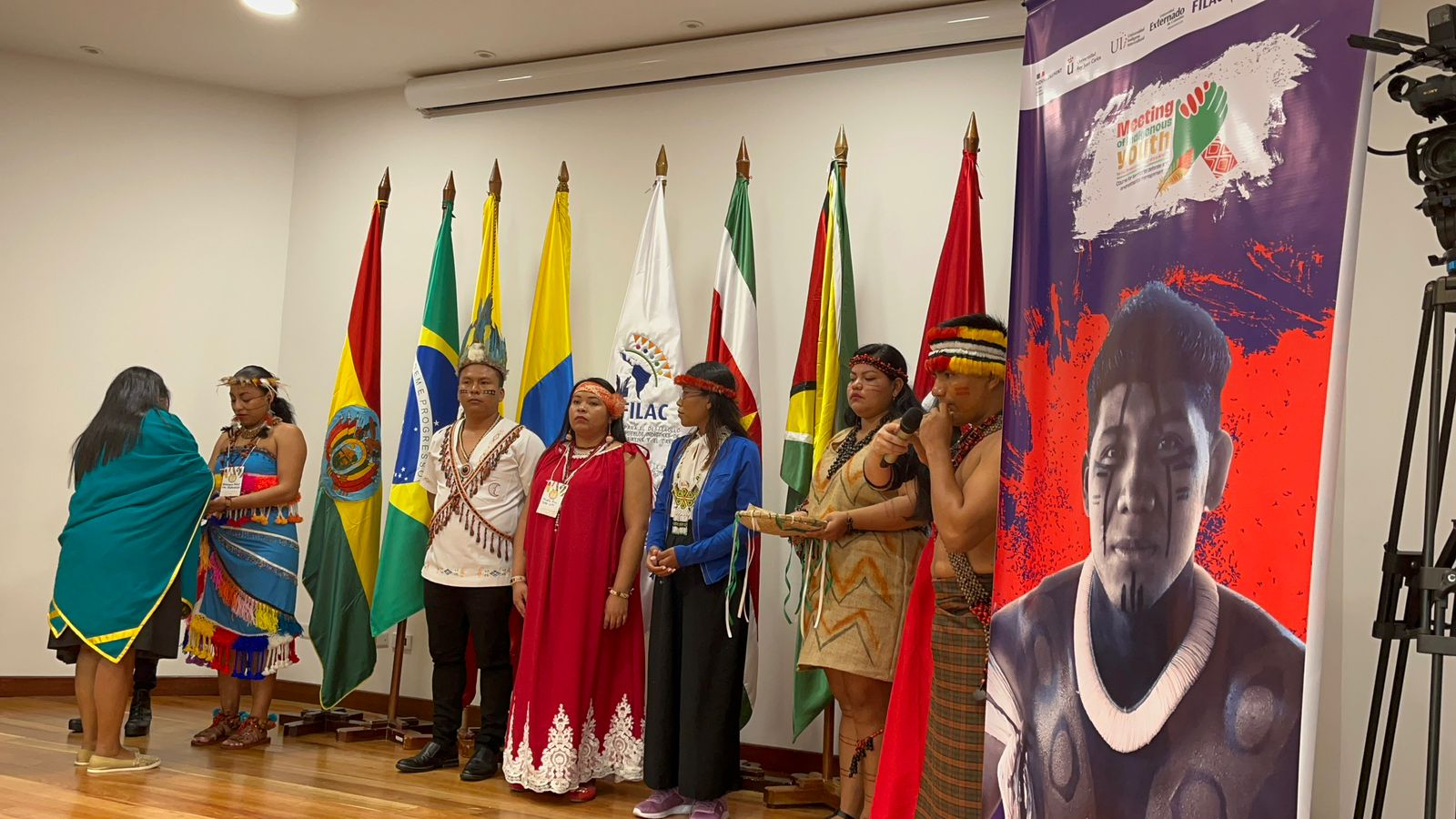COLOMBIA, July 10 – Indigenous Youth from different territories of the Amazon are beginning a gathering today to promote the defense of the largest biodiversity reserve on the planet. Currently, this region is threatened by numerous exploitation and extraction projects in the countries that share it.
The meeting will be attended by 75 young people from 47 Indigenous Peoples from eight countries in the Amazon Basin: Bolivia, Brazil, Colombia, Ecuador, Guyana, Peru, Suriname, and Venezuela. They will gather from July 10th to 12th, 2023, in the city of Bogota, Colombia, to reflect and present intervention proposals for the defense, protection, and conservation of the Amazon.
“The gathering of Indigenous youth from the Amazon becomes a unique space for analysis, where the voices emerging from the territories come together to promote measures to protect the largest biodiversity reserve on the planet,” said Alberto Pizarro,Technical Secretary of the Fund for the Development of Indigenous Peoples of Latin America and the Caribbean – FILAC.

The territory of the Amazon covers over seven million square kilometers and is considered the largest tropical forest in the world. However, a variety of projects related to hydrocarbons, mining, and illegal logging threaten its integrity and cause displacements of over 400 Indigenous Peoples, species, and ecosystems.
“Indigenous peoples, their territories, and traditional knowledge are essential to prevent the point of no return in the Amazon. This role in climate stability is becoming increasingly important; however, it requires more concrete actions that reach local populations,” mentioned Cándido Pastor, Senior Director of the Amazon and Indigenous Peoples and Local Communities (PPICL) program at Conservation International.
The gathering is organized by the Fund for the Development of Indigenous Peoples of Latin America and the Caribbean- FILAC, the Externado University of Colombia, Conservation International – CI, and the Government of France. The meeting builds upon the course “Strengthening Capacities for Territorial Defense and Sustainable Environmental Management,” held between November 2022 and March 2023.

The learning space aimed primarily at strengthening the capacities of young indigenous individuals from communities in the Amazon Basin, focusing on aspects related to the defense of their territories and sustainable development management, particularly inrelation to conservation and sustainable environmental management from a Buen Vivir- Vivir Bien approach.
The indigenous youth are developing innovative projects concerning territory protection, water protection and purification, reforestation and ecological restoration, clean energy, recovery of degraded areas, traditional medicine, economic initiatives, rights promotion, community tourism, and awareness-raising to reduce destruction and promote the protection of the Amazon.
“Indigenous Peoples are transcendent actors in ‘global governance’ due to the exercise of their epistemic authority as guardians of nature across national borders. Their authority is justified by their scientific knowledge of biological diversity and ecosystem services relevant to providing a safe planetary home for human and non-human life as a common good of humanity,” said Martha Isabel Gómez Lee, Research Professor at the Faculty of Government and International Relations of the Externado University of Colombia.

This initiative is organized and coordinated by the FILAC and Conservation International with the pedagogical support of the Indigenous Intercultural University, the Externado University of Colombia, and the King Juan Carlos University of Madrid, and with financial support from the Government of France.
These young individuals have joined their voices and ancestral knowledge with an urgent call to action and request that their proposals be considered at the Summit of Amazonian countries that Brazil will host in August, with the purpose of saving the planet’s largest lung.


